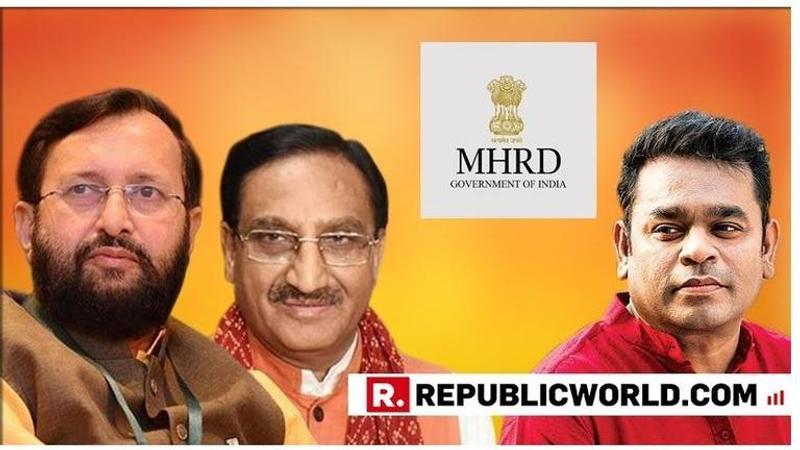Published 12:52 IST, June 3rd 2019
'Wonderful decision', says AR Rahman hailing Centre's revision of 3-language formula draft that invited 'Hindi Imposition' criticism. Read here
As soon as the centre revised its new policy on Education, and stated that students will be free to use as languages of their choice, Oscar-winning singer A R Rahman took to Twitter to express his gladness on Centre's decision.

As soon as the centre revised its new policy on Education, and stated that students will be free to use as languages of their choice, Oscar-winning singer A R Rahman took to Twitter to express his gladness on Centre's decision. While the Opposition in the southern states, from Karnataka Chief Minister HD Kumaraswamy to DMK chief MK Stalin, criticised the government's move touting it as 'imposing Hindi', Rahman jumped into the controversy and expressed his stance.
Taking to Twitter, he wrote in Tamil: "Wonderful decision,
Hindi is not compulsory in Tamil Nadu. The draft policy has been revised".
The controversy on the National Education Policy 2019 began after MNM chief Kamal Haasan objected saying 'Hindi should not be imposed on anyone'. The draft of New Education Policy prepared by the Kasturirangan Committee was released on Friday, which spoke of the continuation of three-language formula in the schools.
The Government has however revised the draft by mentioning on Page number 84 under subtitle Flexibility in the three-language formula that states that the student will be allowed to choose any language of their choice. Here's the revised excerpt:
"In keeping with the principle of flexibility, students who wish to change one or more of the three languages they are studying may do so in Grade 6 or Grade 7, so long as they are able to still demonstrate proficiency in three languages (one language at the literature level) in their modular Board Examinations sometime during secondary school (see P4.9.5). Since the modular Board Examinations for language proficiency will indeed test only for basic proficiency in each language, such a change in language choice in Grade 6 would certainly be feasible if the student so desires and would in such cases be supported by teachers and the schooling system. Additional choices of languages would, therefore, be offered in middle school for this purpose of choice and flexibility. In keeping with the principle of flexibility, students who wish to change one or more of three languages they are studying may do so in Grade 6 or Grade 7, so long as they are able to still demonstrate proficiency in three languages (one language at the literature level) in their modular Board Examinations sometime during secondary school."
Meanwhile, as the controversy snowballed, the Centre dismissed apprehensions on the issue and said there was no move to impose any language on anyone.
"Only a report has been submitted on the new education policy. Government has not taken any decision on it. It has not even considered it and therefore the misunderstanding that the government has decided on the new education policy is not true. After we will get the public feedback, then only it will come up before the government. More importantly, the Modi government has always promoted all Indian languages and therefore there is no case of or intention of imposing any language on anybody. We want to promote all Indian languages," Information and Broadcasting Minister Prakash Javadekar told the media.
Minister of Human Resource Development Ramesh Pokhriyal said, "There is no intention of imposing any language on anybody, we want to promote all Indian languages. It's a draft prepared by the committee, which will be decided by govt after getting public feedback."
External affairs minister S Jaishankar took to Twitter to reiterate the stance put forth by Javadekar and Pokhriyal.
Updated 13:25 IST, June 3rd 2019




